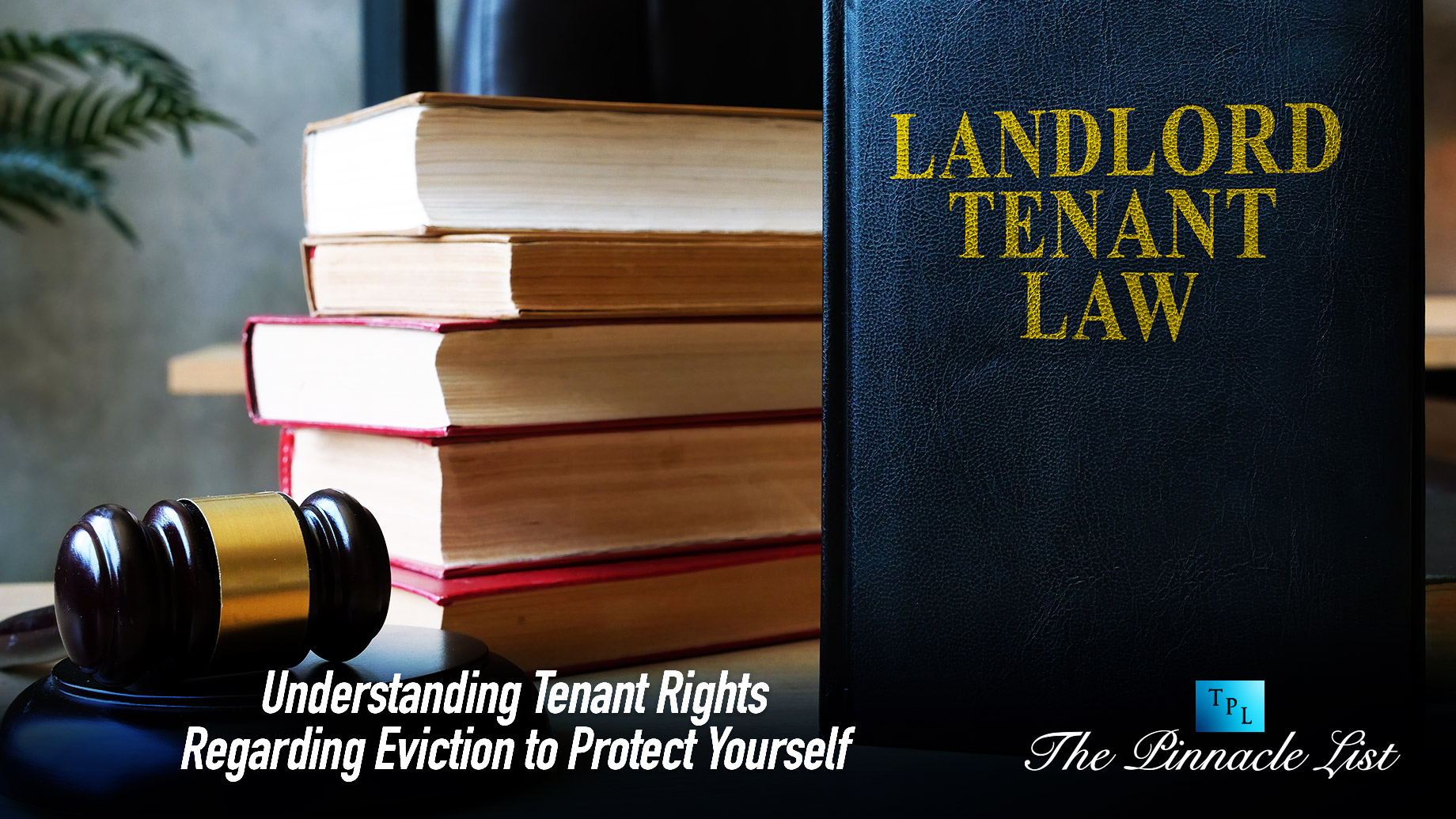
Evictions are distressing events that can upend a tenant’s life and should not be taken lightly. An eviction occurs when a landlord or property manager forcibly removes a renter from their rental unit, typically due to lease violations or other legal grounds.
Since lease and rental agreements are legally binding, landlords must have a valid reason to evict a tenant. Attempting to evict a tenant without sufficient cause can constitute a breach of the lease agreement.
Knowing your rights during an eviction is crucial to keeping your home safe if you’re renting. This article will explain what you need to know simply to stand up for yourself if you ever face an eviction.
The Eviction Process
When a landlord chooses to remove a tenant, they must follow a set of rules by state laws and local regulations. These laws govern how the eviction process unfolds and ensure fairness for both parties.
The eviction process usually starts with the landlord serving the tenant with an eviction notice. This notice formally informs the tenant of the reason for the eviction and outlines the steps to address the issue or vacate the property.
There are three main types of eviction notices:
- Pay Rent or Quit: The landlord may issue a “Pay Rent or Quit” notice if a tenant has fallen behind on rent payments. It allows the tenant to pay the overdue rent or move out of the property within a set period. When tenants can’t afford to pay overdue rent, they might seek help elsewhere. One option is emergency eviction loans. These loans are meant to give tenants a quick way to get money to pay their rent and avoid getting evicted.
- Cure or Quit: If a tenant has violated the terms of the lease agreement, such as by engaging in illegal activities or causing damage to the property, the landlord may issue a “Cure or Quit” notice. It allows the tenant to correct the violation or vacate the premises.
- Unconditional Quit: For more serious breaches of the lease agreement or repeated violations, the landlord may issue this notice. This “Unconditional Quit” notice mandates that the tenant leave the property without any chance to resolve the issue.
The duration of the eviction notice period varies depending on state and local laws, but it typically ranges from 30 to 60 days. During this time, the tenant can address the issue outlined in the notice or make arrangements to move out of the property. Failure to comply with the terms of the eviction notice may result in further legal action by the landlord.
Can Landlords Evict Tenants With No Cause?
Sometimes, landlords want tenants to leave the rental property even if they haven’t done anything wrong. This situation can happen, for example, if the property goes into foreclosure.
When landlords want to evict tenants without a specific reason, it’s called an eviction without cause. It can be challenging for tenants to deal with, but it’s essential to understand your rights in these situations.
Evictions without cause usually have extended notice, giving tenants more time to find a new place to live. This extra time can be crucial for tenants to make arrangements and avoid sudden displacement.
Eviction Proceedings
When tenants receive an eviction notice, they must make a critical decision: either fix the problem mentioned in the notice or move out of the property. Ignoring the notice can lead to legal action, known as eviction proceedings.
During eviction proceedings, the landlord and the tenant present their sides of the story before a judge. Each party can provide evidence and arguments to support their case. The judge carefully considers all the information presented before making a decision.
If the court rules in favor of the landlord, the tenant may face financial consequences, such as paying court fees or other penalties. If the landlord wins the case, the court issues a writ of possession. This legal document gives law enforcement the authority to physically remove the tenant from the property if they refuse to leave voluntarily.
What Defenses Can You Use In An Eviction Court Case?
When facing eviction, tenants aren’t powerless. They have the right to defend themselves against eviction actions using valid defenses. Some common defenses include:
- Housing Discrimination: It’s illegal for landlords to evict tenants based on factors like race, gender, religion, or disability. You have grounds to defend yourself if you believe you’re being evicted due to discrimination.
- Breach of Implied Warranty of Habitability: Landlords must legally maintain rental properties safely and habitable. If your landlord has failed to address serious issues like mold, pest infestations, or plumbing problems, you may have a defense against eviction.
- Retaliatory Eviction: If you’ve exercised your legal rights as a tenant, such as reporting code violations or joining a tenant association, and your landlord tries to evict you in retaliation, you have a defense against this type of eviction.
Conclusion
Eviction can be overwhelming, but you don’t have to navigate it alone. Seeking help from a landlord-tenant attorney who specializes in tenant rights is essential. They can provide valuable legal advice, review your lease agreement, and represent your interests in court if necessary.